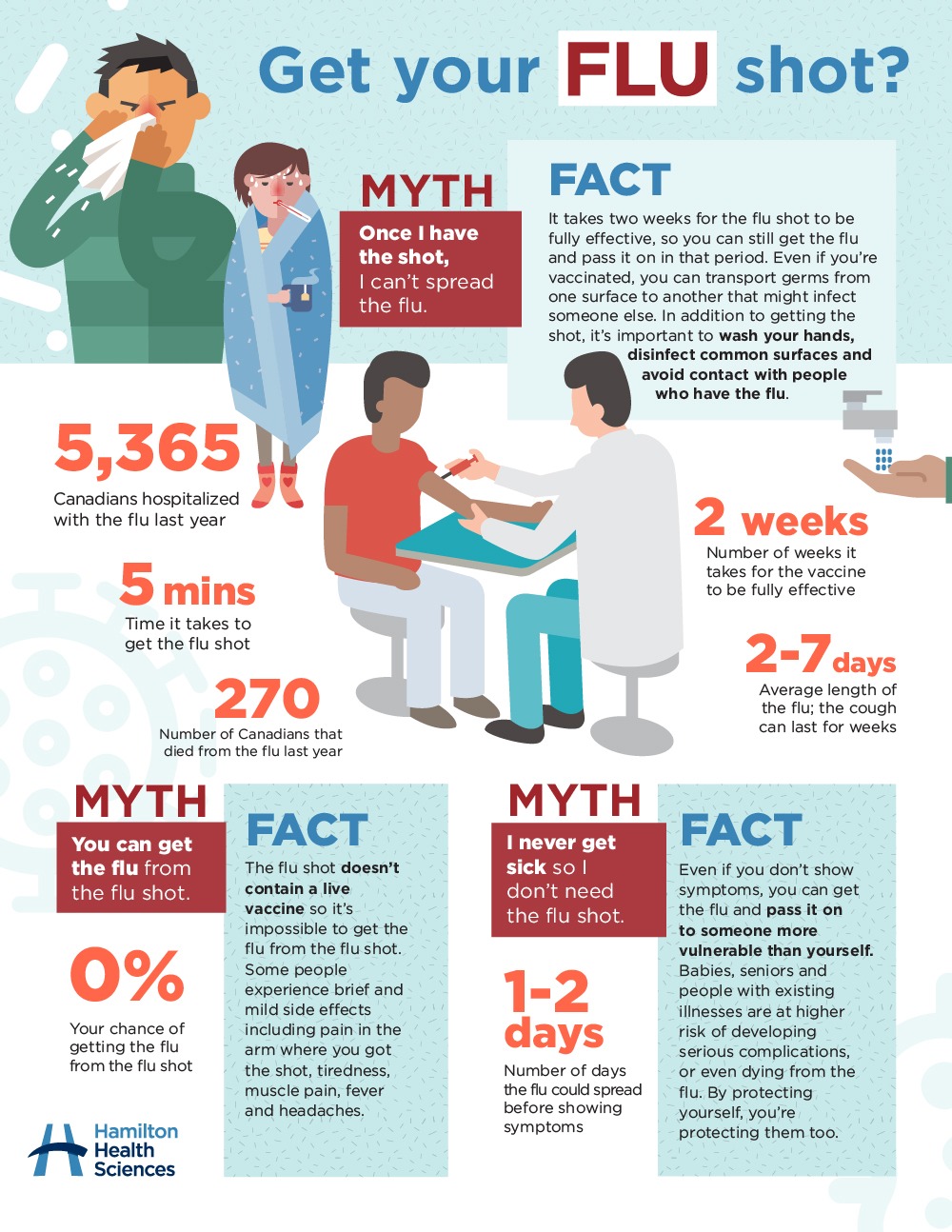
Flu shot myths: Fact or fiction?

Myth 1: Healthy people don’t need the flu vaccine.
Young children and people with medical conditions are at highest risk from the flu, but everyone can benefit from the flu vaccine.
Getting the flu—even if you never see a doctor or get admitted to hospital—often means several days of feeling miserable and missing school and/or work.
Also, during the time that you’re sick, you risk passing on the flu to someone more vulnerable than yourself. Infants, pregnant women, older adults and people with certain illnesses are at risk of getting seriously ill, or even dying from the flu. When you get the flu shot, you’re not just protecting yourself. You’re protecting them as well.
Myth 2: You can get the flu from the flu vaccine.
The flu vaccine does not contain a live flu virus, so it’s impossible to get the flu from the flu shot. Occasionally, people experience brief and mild side effects from the vaccine including pain and swelling in the arm where you got the shot, tiredness, muscle pain, fever and headaches.
Myth 3: Getting the flu makes your immune system stronger.
Getting the flu doesn’t make your body stronger, in general. People who get influenza are not more resistant to other infections compared to people who get vaccinated against the flu.
Myth 4: It’s too hard on the infant immune system to get the vaccine.
Infants under six months old can’t get the flu vaccine.
For babies six months and older, the flu vaccine is very safe. Infants and toddlers are at higher risk for infections and they are more likely to get seriously ill from the flu. That’s why is so important for them to get vaccinated.
Children between 2 and 17 can get the vaccine as a shot or nasal spray.
Myth 5: I can wait until later in the winter to get the flu shot. It doesn’t matter when I get it.
The flu vaccine doesn’t take effect immediately, so it’s best to get it as early in the season as possible. It takes about two weeks after the vaccine is given before you have maximum protection.
Myth 6: The flu is only contagious once a person starts showing symptoms.
The flu can spread 1-2 days before a person shows any symptoms. Symptoms typically appear 1-4 days after you’ve been exposed to the virus.
Myth 7: Getting the flu shot is too time consuming.
It takes less than 5 minutes to get the flu shot. Children under five can get the vaccine at the doctor’s office from their family doctor or nurse practitioner, or at a public health clinic. Anyone five and older can also get the flu shot at a participating pharmacy, often without an appointment. HHS pharmacies will also administer the flu shot to patients and families.
Myth 8: The flu shot is expensive.
The flu shot is free of charge.

– Always sneeze or cough into your elbow
– Wash your hands often with soap and water
– Avoid touching your face
– Stay home if you’re sick so you don’t bring germs to work or school
– Clean and disinfect common surfaces like keyboards and phones
